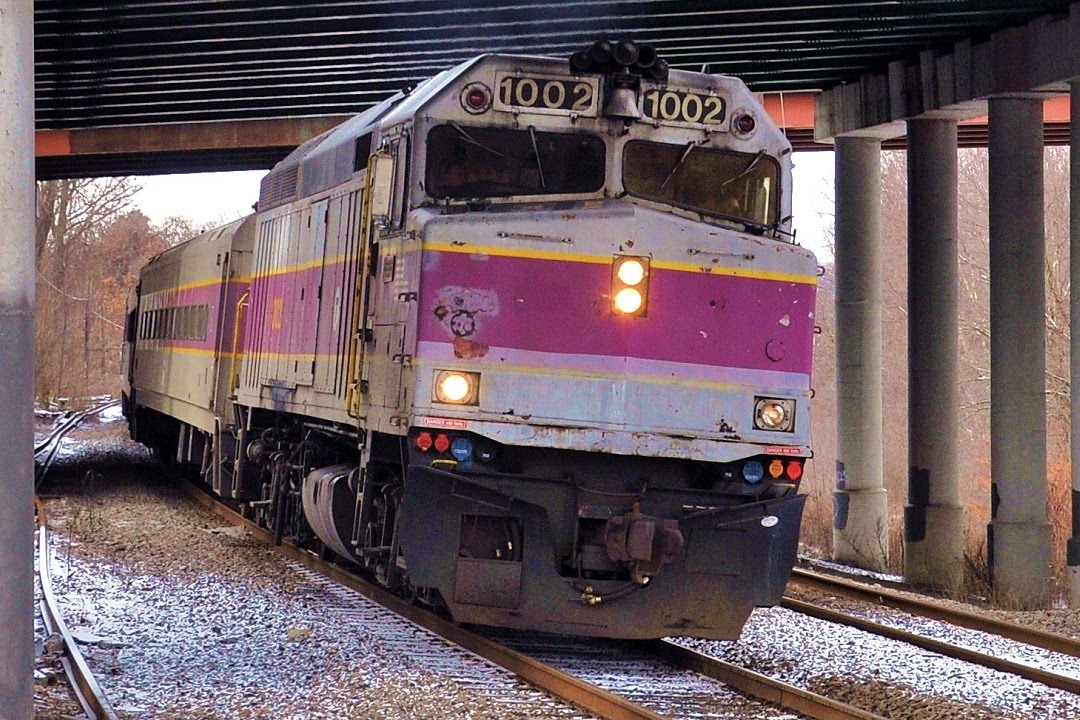By Grace Mayer
***
[broadstreet zone=”59982″] |
FRAMINGHAM – While traffic patterns across Massachusetts return to pre-pandemic bumper-to-bumper congestion, the Massachusetts Bay Transportation Authority (MBTA) recently received the go-ahead on a new project that will add a third commuter rail track on the Framingham/Worcester line and update four stations along Wellesley and Natick.
“I think the one question is going to be how much the commute returns. Is it going to be the same demand we’ve seen for the last 10 years, [or] is it going to change?” Framingham City Council Chair George King said.
Some officials believe the project, currently forecasted for completion in 2030, may not come soon enough.
With more residents commuting via their cars over public transit, traffic has piled up—a problem throughout Massachusetts that the MBTA project could decrease by attracting new riders.
The MBTA project, which has been allotted nearly $28 million from the MBTA Fiscal and Management Control Board, will add a third track on the Framingham/Worcester Line and update four commuter rails stations between Natick and Wellesley, according to powerpoint slides from the MBTA.
[broadstreet zone=”59984″] |
Approved on June 21, the project is designed to improve reliability, lower energy consumption, meet accessibility compliance, and create greater flexibility for commuters on the Line.
The project, which will require an estimate of upwards of $400 million, has not yet secured all the funding it needs.
“Anyone who has ever been late because of a delay with another train on the Framingham-Worcester commuter rail line should be hopeful and excited about this project.” said 7th Middlesx District Representative Jack Patrick Lewis in an email to SOURCE.
But public transportation experienced a significant dip in ridership during the peak months of the Covid-19 pandemic.
As the state reopened, the use of other modes of public transportation, including buses, picked up. But commuter rail ridership has remained low.
As the pandemic continues to challenge working trends—with more businesses allowing employees to opt in to working from home—a recent report released by the Governor Charlie Baker and Lt. Governor Karyn Polito administration predicts the commuter rail will lose almost half of its riders by 2025.
The 2021 Future of Work Report, released by the Baker-Polito administration, finds that public transit ridership will face significant declines by 2025. The commuter rail is expected to encounter the steepest decline in both ridership and revenue.
[broadstreet zone=”59983″] |
The commuter rail, which the report states has a higher number of riders who commute for work trips and who are also able to work from home, has seen a drastic dip in riders because of these two factors.
During this past year, the pandemic’s push to entirely virtual meetings has left an imprint on the workforce—prompting many employers and employees to consider opting to work remotely or partly in-person in the future.
If this percentage of the workforce continues to primarily work from home, the report predicts that by 2025 the commuter rail will lose up to 50% of its pre-pandemic riders. This is double than the loss in riders predicted for bus and subway systems, a loss of up to 20% and 25%, respectively.
If ridership doesn’t bounce back, up to 17% of the MBTA’s revenue could be lost as well. According to the report, the commuter rail accounts for 31% of the MBTA’s revenue—which amounted to $239 million in 2019.
Although the Baker-Polito administration predicts commuter rail ridership will go down, Jason Palitsch, Executive Director of the 495/Metrowest Partnership, believes ridership, which was on the incline pre-pandemic, will bounce back.
The 495/MetroWest Partnership is a group of stakeholders from the MetroWest who advocate for policies that improve transportation, housing, water, and infrastructure.
[broadstreet zone=”66385″] |
“The pandemic has proven quite challenging from the perspective of commuter rail advocacy, because with commuter rail ridership down and not recovering as quickly as other modalities of transportation, like subway or bus, it has lead a lot of folks to conclude falsely, in our view, that commuter rail ridership might not bounce back,” Palitsch said.
While the commuter rail has historically garnered a track record for being unreliable, marred by delays and mechanical issues, Palitsch said the Framingham/Worcester line was starting to shed this reputation.
Pre-pandemic, Palitsch said the Framingham/Worcester line was the fastest growing among riders, between 2012 and 2018, earning a 46% increase in ridership.
While ridership may currently remain low, the MBTA’s plans to add a third track in the future could help to accommodate the previously growing group of riders with additional commuting options, Palitsch said.
He said the MBTA project may also help to convert solo drivers to the commuter rail—alleviating traffic congestion and potentially attracting more employers and homeowners to MetroWest.
[broadstreet zone=”61072″] |
As the MetroWest area has grown over the years—Framingham sizing up to a City in 2018, evidence of that—Palitsch said employers are increasingly looking to this area for business development. But traffic and transit accessibility are factors that can also deter businesses.
“There are a lot of large employers looking to grow, smaller employers looking to grow—they’re considering locating in this region, hiring in this region,” Palitsch said. “But when you’re hearing from potential employees and looking at the region, and they see that traffic is an issue, it could give them pause.”
Deputy Director of the MetroWest Chamber of Commerce, an association that provides economic development support to businesses in the region, Stephanie Hirshon said that conversations about improving housing and transportation—two components that go “hand-in-hand” Hirshon said—have been in the works for years. The MBTA project would address the transit component, potentially attracting employers and employees, she said.
“To be able to attract and retain employees with better transportation infrastructure and more housing options is a positive,” said Hirshon, who has 20 years of transportation consulting experience in MetroWest.

Observing traffic patterns and congestion in the MetroWest area for years, Hirshon said that improvements to the transit system were badly needed. She said that the Chamber has spoken with businesses, many of which are implementing more work-from-home options for its employers. Anticipating these changes, Hirshon said the additional MBTA track would create more transit options for employees who occasionally work in-office.
But the future of work—and the workforce—is also changing. Hirshon said the commuter rail could attract younger demographics, who are increasingly opting out of owning their own vehicles.
But while this new transit option could attract future employees, Framingham City Councilor Janet Leombruno said those who are currently in the workforce—people in their 40s, 50s, and 60s—will be most impacted by the construction timeline of this project.
While they endure construction and plans on the commuter rail for the next 10 years, likely adding to their commute times, Leombruno said many among this age demographic won’t get to utilize the benefits of this project.
“When you talk about a decade of disruption, it puts people at a high stress level,” sid Leombruno, whois chair of the City Council’s Public Health, Safety & Transportation subcommittee “… because the benefits are 10 years down the road, a lot of people are going to be out of the workforce at that point.”
Massachusetts Senate President Karen Spilka said the MBTA project is much-needed.
She said Massachusetts’ roads are becoming “more and more congested almost by the day, and I think we need to take a good hard look at that. People are clamoring for public transportation.”
[broadstreet zone=”58892″] |
Spilka, who during her term on the Massachusetts Senate has advocated for improvements to public transportation in the MetroWest, said she’s concerned about the length of the project.
She said she plans on asking questions about the MBTA’s plans, particularly about the cost of the project and why it’s projected to take 10 years.
“The length of time is clearly not express,” Spilka said. “… We need to expedite these kinds of projects.”
Carlos Valadares, who is running in the 2021 mayoral race, said he supports the MBTA project and that any updates to public transit that could improve residents’ lives are welcome.
Mayor Yvonne Spicer and mayoral candidate Charlie Sisitsky did not respond to a SOURCE request for comment on the MBTA project.
While residents may have grown accustomed to forgoing public transit this past year, Leombruno said with traffic and rising fuel costs the third track on the commuter rail could encourage people in the MetroWest to not rely on their cars as often.
“We do, in the MetroWest, rely on our cars far more than we do the train,” Leombruno said. “I think we can change our thought process on how we get places.”
***
Grace Mayer is a 2021 SOURCE summer intern. She is a Boston College student


